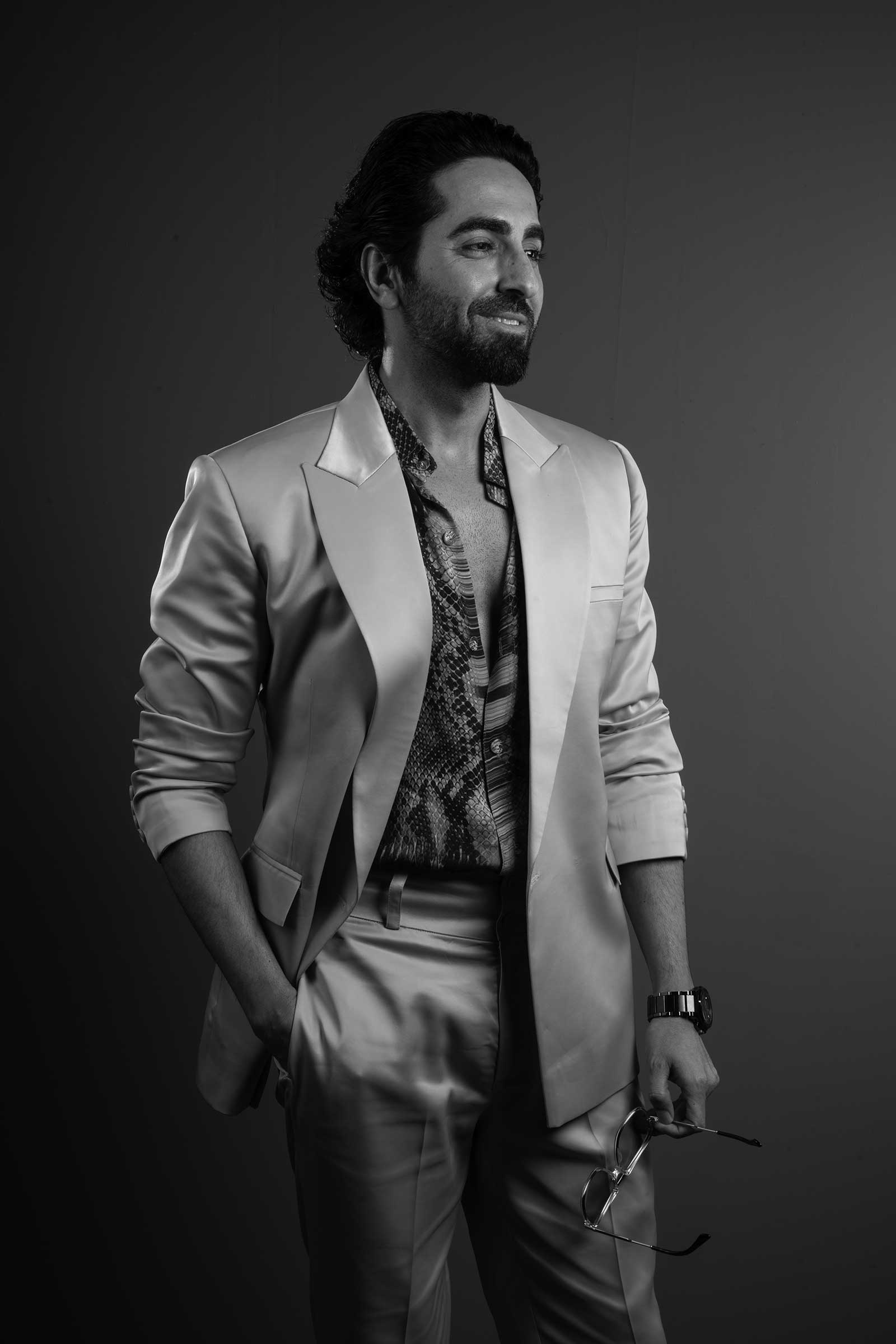A blind pianist. A balding salesman. An erectile dysfunction patient. And a man disguising himself as a call girl in small-town India. These aren’t roles typically coveted by India’s most popular male actors, for whom a more standard path to stardom relies on depicting traditional masculinity. But Ayushmann Khurrana is not your average Bollywood A-lister.
The 38-year-old star made his breakthrough in 2012 by playing a sperm donor in Vicky Donor. The role had previously been turned down by many well-known actors because it dealt with infertility, a taboo topic in India. But Khurrana’s effortless performance and impeccable comic timing won the hearts of viewers and critics alike, subsequently earning him a Filmfare Award, akin to India’s Oscars, for the year’s best male debut.
Khurrana, who grew up in the city of Chandigarh in northern India and dabbled in street theater, entered the Hindi-language film industry at a time when “small-budget films that were high on storytelling content were doing really well,” he says.
“I don't know whether it was by design or by default, but I was glad to be a part of that wave because it was very important to carve your own space,” he adds. “And I've actually owned that space and I'm really proud of that.”
Since then, Khurrana has carefully curated a filmography that seamlessly switches between light-hearted commercial hits and films that critique the social mores of India’s conservative middle class. The risk-taking has seen the actor win several more accolades, including a prestigious National Film Award, administered by the Indian government.
As his career has flourished over the years, Khuranna has also become passionate about using his platform on the silver screen to advocate for social issues. “Through my films, I’ve also learned and evolved as a person,” he says. “And it has made me realize that every person in the public eye has a certain social responsibility.”
This approach has set the tone not just for a successful film career, but also for Khurrana’s parallel endeavors as a singer, a poet, a philanthropist, and an advocate for India’s youth. In February, UNICEF India appointed Khurrana as a National Ambassador to promote and foster the rights of children in India. (Khurrana had previously worked with UNICEF on campaigns focused on ending violence against children before stepping up to his new responsibilities.)
Among other initiatives, he has spoken up for the inclusion of all children, irrespective of gender, caste, or disability, in sports. More recently, he has campaigned against cyberbullying as part of a yearlong joint initiative between UNICEF India and Facebook’s parent company Meta aimed at ending violence against children. Khuranna says cyberbullying is one of the most prevalent issues among India’s youth, who dominate a market of nearly 290 million social media users. “Teens are more vulnerable to cyberbullying today since your online personality is more dominant than your offline personality,” he says, “so that has become the need of the hour.”
Though much of Khurrana’s starpower may come from veering into unexpected territory, he’s equally aware of the added pressure that these trailblazing roles can bring. “It’s not easy to put extraordinary issues in ordinary situations in films, especially in a very diverse country like India,” he says. “But if you approach it with the right intent, you can add some value to society.”
For his part, Khurrana is committed to continuing to try to make a difference—both on-screen through his roles and off-screen through his advocacy. “While you can give a certain message through your art,” he says, “even better if you can do something about it on the ground.”
- The 100 Most Influential People of 2024
- Coco Gauff Is Playing for Herself Now
- Scenes From Pro-Palestinian Encampments Across U.S. Universities
- 6 Compliments That Land Every Time
- If You're Dating Right Now, You're Brave: Column
- The AI That Could Heal a Divided Internet
- Fallout Is a Brilliant Model for the Future of Video Game Adaptations
- Want Weekly Recs on What to Watch, Read, and More? Sign Up for Worth Your Time
